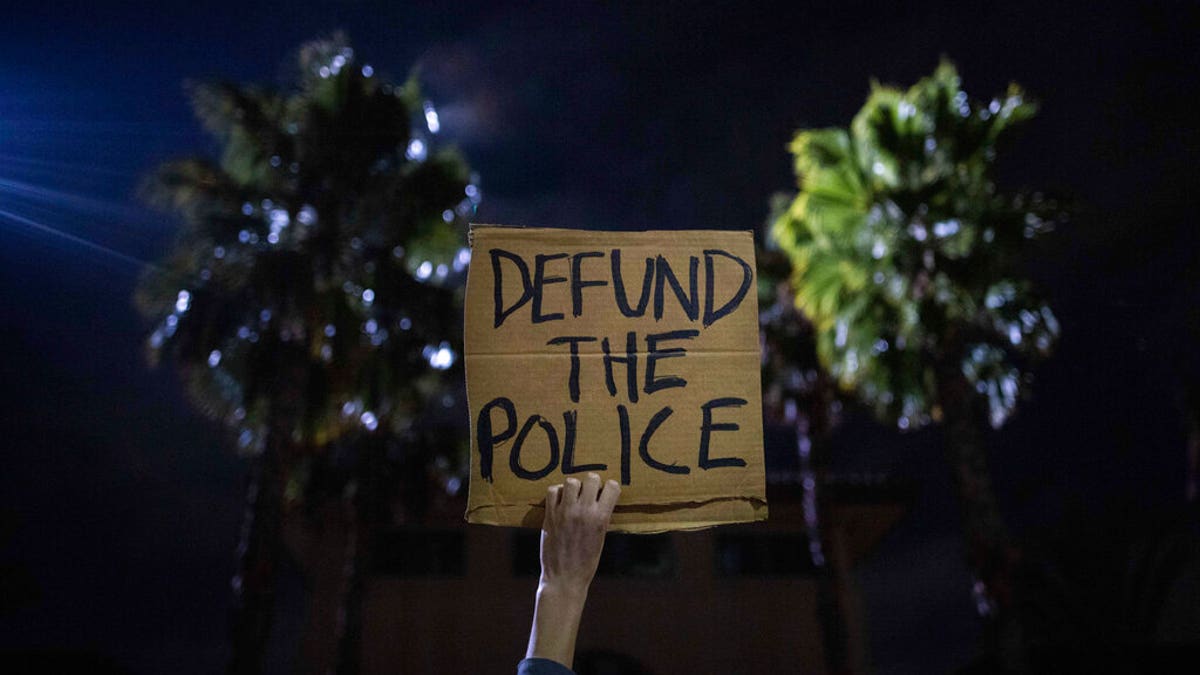Police departments across the U.S. are resisting mostly left-wing efforts to overhaul their policies in the wake of several high-profile police custody deaths this year, according to a report.
In a nationwide survey conducted by the Washington Times, multiple police departments and law enforcement organizations said they have already implemented many of the policy changes being called for, including de-escalation, use of force and increased transparency. They have instead opted for slight adjustments to existing policies.

A protester holds up a sign as a police helicopter flies by in front of the South Los Angeles Sheriff's Department during protests following the death of Dijon Kizzee. (AP)
In Fayetteville, N.C., for instance, police Chief Gina V. Hawkins told the Times that her department has implemented at least 30 changes since George Floyd died in the custody of Minneapolis police, though she described those changes as “minor tweaks.”
Joseph Lukaszek, the police chief in Hillside, Ill., said his department has been under pressure to use more body cameras, despite being one of the first departments in the state to start using them. He also said his department has been doing de-escalation training for 25 years.
And last week, the Detroit Board of Police Commissioners proposed 18 policy revisions to reduce officers’ use of force and emphasize de-escalation practices. But seven of those revisions correlated with existing protocols, and three of them were already addressed in established policies.
DANIEL PRUDE DEATH RAISES NEW QUESTIONS OVER NEW YORK MENTAL HYGIENE LAW, 911 CALLS INVOLVING PCP
Consequently, many police departments say efforts to drastically reform their policies will be redundant or ineffective.
“Nobody is doing anything wrong,” said James Pasco, executive director of the National Fraternal Order of Police. “When someone is doing something wrong, they are stepping outside the directives of the department.”
The matter has come to a standstill with more than half of the nation’s state legislatures adjourned until 2021, and congressional lawmakers remaining focused on the 2020 presidential election.
Lorenzo Boyd, director of the Center for Advanced Policing at the University of New Haven, told the Times that any major changes would have to come from local legislators rather than the police departments themselves.
CLICK HERE TO GET THE FOX NEWS APP
“We need broad, sweeping, wholesale changes, and the problem is we are looking at the police to make the changes,” he said. “We’ve been policing the same way for the past 150 years, and it hasn’t changed through Jim Crow or stop-and-frisk. It is not realistic for us to expect the police to change internally.”


